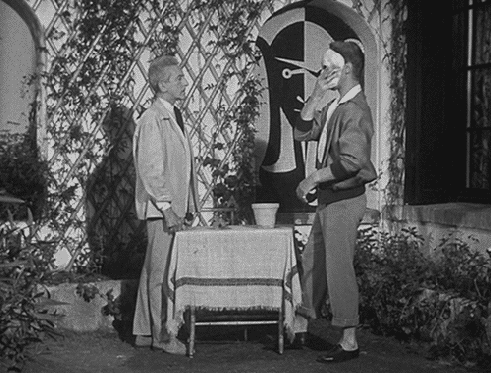laura here! I study finance & international commerce/trade / sideblog dedicated to languages and studying. / Native: English/Spanish // learning: Korean (A2/B1); French (B1)/ Wanna learn one day: Japanese ✨
Don't wanna be here? Send us removal request.
Text




There's been a lot of PhD reading in may, but also a few nice things! 🌞
164 notes
·
View notes
Text
mais?? je viens de tomber sur un mec dans une vidéo youtube qui a vécu exactement la même chose que moi niveau langue! il a grandi entre deux pays, pareil, un anglophone, l’autre pas. trop fou
0 notes
Text
🤏 i’m this close to finishing pride and prejudice. i love how I’m not anxious for the ending cuz i know what to expect
1 note
·
View note
Text
Negations 101
I don’t like cheese - Je n’aime pas le fromage
I don’t like cheese anymore - Je n’aime plus le fromage
I’ve never liked cheese - Je n’ai jamais aimé le fromage
I don't like cheese yet - Je n'aime pas encore le fromage
I still don't like cheese - Je n'aime toujours pas le fromage
I don't always like cheese - Je n'aime pas toujours le fromage
I don't like cheese that much - Je n'aime pas tant que ça le fromage
I don't necessarily like cheese - Je n'aime pas forcément le fromage
(I only like cheese) - Je n’aime que le fromage
I will never like cheese again - Je n'aimerais plus jamais le fromage
I don’t like cheese nor bread - Je n’aime ni le fromage ni le pain
None of my friends like cheese - Aucun de mes amis n’aime le fromage
I like no one - Je n’aime personne
I like nothing - Je n’aime rien
I never like anything - Je n'aime jamais rien
I no longer like anything - Je n'aime plus rien
He is nowhere - Il n’est nulle part
There’s nothing to do - Il n’y a rien à faire
I don’t see anyone - Je ne vois personne
I can't see him - Je n'arrive pas à le voir**
I see no solution - Je ne vois aucune solution
I never do anything - Je ne fais jamais rien
Don’t go! - Ne pars* pas / Ne partez pas
Don’t go there! - N’y va pas
*We use Partir rather than Aller which is a transitive verb i.e. requires an object (I'm leaving is an acceptable sentence but I'm going is considered unfinished).
**We don't use Pouvoir (to be able to) as it would refer to one's physical ability to see. My eyes are functional, I just can't spot people.
Learn more about "Ne".

Fanmail - masterlist (2016-) - archives - hire me - reviews (2020-) - Drive
521 notes
·
View notes
Text


Accounting and excel studies + some reading ~ June 2nd
My goal this week is to finish the last two modules of the accounting course. Afterwards, it’s just a matter of doing the practice problems and reviewing. I plan on taking a financing modeling course in July, so I need to improve my excel skills asap (boooo 🤧).
📖 Currently reading: Junie by Erin Crosby
I’ve been enjoying this a lot. I’m only 68 pages in, so it’s too soon to recommend, but I feel it’s a good book. There's a repetitive trope I'm hoping the author doesn't fall into, so fingers crossed.
14 notes
·
View notes
Text
Duolingo Sucks, Now What?: A Guide
Now that the quality of Duolingo has fallen (even more) due to AI and people are more willing to make the jump here are just some alternative apps and what languages they have:
"I just want an identical experience to DL"
Busuu (Languages: Spanish, Japanese, French, English, German, Dutch, Italian, Portuguese, Chinese, Polish, Turkish, Russian, Arabic, Korean)
"I want a good audio-based app"
Language Transfer (Languages: French, Swahili, Italian, Greek, German, Turkish, Arabic, Spanish, English for Spanish Speakers)
"I want a good audio-based app and money's no object"
Pimsleur (Literally so many languages)
Glossika (Also a lot of languages, but minority languages are free)
*anecdote: I borrowed my brother's Japanese Pimsleur CD as a kid and I still remember how to say the weather is nice over a decade later. You can find the CDs at libraries and "other" places I'm sure.
"I have a pretty neat library card"
Mango (Languages: So many and the endangered/Indigenous courses are free even if you don't have a library that has a partnership with Mango)
Transparent Language: (Languages: THE MOST! Also the one that has the widest variety of African languages! Perhaps the most diverse in ESL and learning a foreign language not in English)
"I want SRS flashcards and have an android"
AnkiDroid: (Theoretically all languages, pre-made decks can be found easily)
"I want SRS flashcards and I have an iphone"
AnkiApp: It's almost as good as AnkiDroid and free compared to the official Anki app for iphone
"I don't mind ads and just want to learn Korean"
lingory
"I want an app made for Mandarin that's BETTER than DL and has multiple languages to learn Mandarin in"
ChineseSkill (You can use their older version of the course for free)
"I don't like any of these apps you mentioned already, give me one more"
Bunpo: (Languages: Japanese, Spanish, French, German, Korean, and Mandarin)
86K notes
·
View notes
Text
i have an italki lesson for this Saturday and Sunday to practice my french speaking. I've been slacking on french and I really feel like speaking it. my tutor this Sunday is a new one so I hope it goes well. I'll just practice my listening this week by watching youtube videos
0 notes
Text

i needed to read this today so im sharing it to all of you!!
177K notes
·
View notes
Text
shoutout to all the people who are working hard as fuck to heal themselves but can’t fully heal because they’re still stuck in toxic situations or around toxic people. please know you’re doing all that you can. you got this. keep going.
2K notes
·
View notes
Text
Dont
Dont is an invariable pronoun with a specificity: it only associates with verbs that require the preposition de.
J'aime le garçon > le garçon que j'aime.
Le garçon m'aime > le garçon qui m'aime.
Je parle du garçon > le garçon dont je parle.
It has five meanings:
Whose/with (portional): l'homme dont les cheveux sont longs - the man whose hair is long/with the long hair
Of which/whom (indirect object complement*): c'est l'appartement dont j'ai parlé - it is the flat of which I spoke about; cette femme, dont le nom m’échappe, est venue ce matin - this lady, the name of whom escapes me, came this morning.
To/from whom (adjective complement): j'ai fait un cadeau à la collègue dont je suis la plus proche - I gave a gift to the colleague to whom I am the closest to
By which/whom: la famille dont il fut entouré - the family by whom he was surrounded.
Including/of whom: il a eu dix enfants, dont neuf filles - he had ten children, nine of whom being girls.

55 notes
·
View notes
Text
-moment expressions
A aucun moment - at no moment
A ce moment là - at that particular moment
A tout moment - at any moment
Au bon moment - at the right moment
Au dernier moment - at the last moment
Au moment opportun - at the appropriate moment
Au moment où - at the moment where
Au moment voulu - at the set moment
A un moment (donné) - at a (given) moment
Ca va prendre un moment - it is going to take a moment
C'est le moment - it is the moment
C'est ton moment - it is your moment
C'est un mauvais moment à passer - it is a bad time to go through (to console someone before a difficult moment)
Dans un moment - in a moment
Du moment que - as long as
D'un moment à l'autre - any minute now
En ce moment - currently
Grand moment de solitude - great moment of solitude (feeling during a humiliation), m
Il y a un moment - a while ago
Il y a un moment où - at some point you need to
Jusqu'au moment où - until
Le moment est venu de - the time has come to
Momentané - brief
Momentanément - momentarily
Moment charnière - pivotal moment, m
Moment-clé - key moment, m
Moment de vérité - moment of truth, m
Par moments - every now and then
Pour le moment - for now
Sur le moment - when it happened, at the time
Un moment - one moment, m
Vivre le moment présent - living in the moment
Fanmail - masterlist (2016-) - archives - hire me - reviews (2020-) - Drive

56 notes
·
View notes
Text
sometimes i overthink and worry so much about uni and life. like I just gotta learn to be grateful that I can even afford uni and the life I have. there's so many things I wanna do but I just gotta take it one step at a time.
5 notes
·
View notes
Text
Ways to translate Time
Temps, m:
I haven’t got much time: Je n'ai pas beaucoup de temps
You still have time: Tu as encore du temps
It was done in no time: Ça a été fait en un rien de temps
I’ve been gone for a long time: Je suis partie depuis longtemps
He was ahead of his time: Il était en avance sur son temps
Moment, m:
Now is not the time: Ce n’est pas le moment
It could happen at any time: Cela pourrait arriver à tout moment
At that point, I said no: À ce moment-là, j’ai dit non
In that case, I’ll leave earlier: À ce moment-là, je partirai plus tôt
Fois, f:
This time, I will be there: Cette fois, je serai là
Once upon a time: Il était une fois
Three times a day: Trois fois par jour
Two at a time: Deux à la fois
The last time I saw her: La dernière fois que je l’ai vue
2 times 2 is 4: Deux fois deux égalent quatre
Heure, f:
I need to leave on time: Il faut que je parte à l’heure
It was two o'clock: Il était deux heures
What time do you wake up?: À quelle heure te lèves-tu?
Mesure, f (music):
To keep time: Battre la mesure
In time: En mesure
Bar line: La barre de mesure

376 notes
·
View notes
Text
Dont
Dont is an invariable pronoun with a specificity: it only associates with verbs that require the preposition de.
J'aime le garçon > le garçon que j'aime.
Le garçon m'aime > le garçon qui m'aime.
Je parle du garçon > le garçon dont je parle.
It has five meanings:
Whose/with (portional): l'homme dont les cheveux sont longs - the man whose hair is long/with the long hair
Of which/whom (indirect object complement*): c'est l'appartement dont j'ai parlé - it is the flat of which I spoke about; cette femme, dont le nom m’échappe, est venue ce matin - this lady, the name of whom escapes me, came this morning.
To/from whom (adjective complement): j'ai fait un cadeau à la collègue dont je suis la plus proche - I gave a gift to the colleague to whom I am the closest to
By which/whom: la famille dont il fut entouré - the family by whom he was surrounded.
Including/of whom: il a eu dix enfants, dont neuf filles - he had ten children, nine of whom being girls.

55 notes
·
View notes
Text
-eux adjectives 1/2
Affectueux - affectionate
Affreux - awful/hideous
Ambitieux - ambitious
Amoureux - in love
Anguleux - angular/bony
Anxieux - anxious
Aqueux - water-based
Astucieux - astute
Audacieux - audacious
Baveux - slimy/runy (cooking)
Belliqueux - aggressive
Bienheureux - blissful/blessed
Bigleux - short-sighted (casual)
Boiteux - lame (that limps)/unstable
Boueux - muddy
Boutonneux - zitty
Calomnieux - slanderous
Cancéreux - cancerous
Caoutchouteux - rubbery
Capiteux - intoxicating (often about smells)
Capricieux - willful/difficult/fickle
Chaleureux - warm, friendly
Chanceux - lucky
Chatouilleux - ticklish
Cireux - waxy
Classieux - classy (often mocking)
Coléreux - quick-tempered
Comateux - comatose/sleepy (casual)
Consciencieux - painstaking/meticulous
Contagieux - contagious
Courageux - brave
Coûteux - costly
Crasseux - filthy
Crayeux - chalky
Crémeux - creamy
Creux - hollow/empty
Curieux - curious
Dangereux - dangerous
Dédaigneux - scornful
Défectueux - defective
Délicieux - delicious
Désastreux - disastrous
Désavantageux - unfavourable
Disgracieux - disagraceful
Doucereux - sickly sweet
Douloureux - painful
Douteux - dubious, unlikely
Duveteux - fuzzy
Élogieux - full of praise
Ennuyeux - boring
Envieux - envious
Fabuleux - fabulous
Facétieux - facetious
Fâcheux - annoying, unpleasant
Fallacieux - fallacious, deceptive
Fameux - renowned/notorious, much talked about, big
Fastidieux - tedious, tiresome
Fiévreux - feverish
Foireux - crappy (casual)
Fougueux - spirited, fiery
Frauduleux - fraudulous
Furieux - furious
Gâteux - doddering, senile
Généreux - generous
Glorieux - glorious
Gracieux - gracious
Grincheux - grumpy
Haineux - hateful
Hargneux - bad-tempered, nasty
Harmonieux - harmonious
Heureux - happy
Honteux - shameful
Impérieux - high and mighty/urgent
Impétueux - impulsive
Ingénieux - astute, clever
Injurieux - insulting
Insidieux - insidious
Irréverencieux - irreverent, disrespectful
Joyeux - joyful
Judicieux - judicious, wise
Juteux - juicy
Laborieux - laborious (hard work)
Laineux - wooly
Laiteux - milky
Langoureux - languid
Lumineux - bright (light)
Luxueux - luxurious

89 notes
·
View notes
Text
Les temps verbaux
Les temps
Le passé
Pluperfect (plus-que-parfait): Elle avait fermé la porte - She had closed the door [imperfect Être/Avoir auxiliary + past participle]
Imperfect (imparfait): Elle fermait la porte - She closed the door [description, historical detail, habit in the past]
Perfect (passé composé): Elle a fermé la porte - She has closed the door [simple present Être/Avoir + past participle]
Simple past (passé simple): Elle ferma la porte - She closed the door [literary]
Past conditional (conditionnel passé): Elle aurait fermé la porte - She would have closed the door [present conditional Être/Avoir + past participle; expresses a regret or theory/fantasy]
Perfect past (passé antérieur): Elle eut fermé la porte - She had closed the door [simple past Être/Avoir + past participle; rare, literary, expresses the anteriority of an action compared to the one that follows]
Recent past (passé récent): Elle vient de fermer la porte - She just closed the door [simple present Venir de + infinitive; about what just happened]*
Past imperative (impératif passé): Aie fermé la porte - Have the door closed (before...) [present imperative Être/Avoir without the pronoun + past participle; only in 2nd person singular + 1st/2nd person plural, expresses the anteriority of an action (order, prohibition, suggestion, plea) compared to the one that follows]
Past infinitive (infinitif passé): Avoir fermé la porte est important - Having closed the door is important [present infinitive Être/Avoir + past participle; expresses the anteriority of an action accomplished before the one that follows]
(Past participle (participe passé): Elle a fermé la porte [used after an auxiliary in multiple compound tenses, usually to express a past action])
Le présent
Indicative/simple present (présent de l'indicatif/simple): Elle ferme la porte - She closes the door
Progressive present (présent progressif): Elle est en train de fermer la porte - She is closing the door [simple present Être + en train de + infinitive; about what is in the process of happening]
Present conditional (conditionnel présent): Elle fermerait la porte - She would close the door [expresses politeness, a desire, suggestion, theory]*
Present imperative (impératif présent): Ferme la porte - Close the door [simple present without the pronoun; only exists in 2nd person singular and 1st/2nd person plural, expresses an order, prohibition, recommendation, plea]
Present infinitive (infinitif présent): Fermer la porte - Close the door [infinitive verb; used in lists, on signs, after certain prepositions/conjugated verbs, expresses a number of feelings]
(Present participle: Elle ferme la porte menant aux chambres - She closes the door leading to the bedrooms [verb + -ant; used to add precisions and usually replaces qui + simple present verb])
Le futur
Near future (futur proche): Elle va fermer la porte - She is going to close the door [present Aller + infinitive; about what is about to happen]
Simple future (futur simple): Elle fermera la porte - She will close the door
Perfect future (futur antérieur): Elle aura fermé la porte - She will have closed the door [simple future Aller + infinitive; about what will have happened]
*NB: To use "If... (then)..." constructions, use imperfect for V.1 and present conditional for V.2 in the present (Si elle mangeait, elle n'aurait pas faim), or pluperfect for V1. and past conditional for V.2 in the past (Si elle avait mangé, elle n'aurait pas eu faim).

Les modes
Present gerund (gérondif présent): Elle ferme la porte en criant - She closes the door shouting [(conj. verb 1 +) en + verb 2 + -ant; used to describe two simultaneous actions, a consequence, or one's way of doing something; not to be used with a stative verb (Être, Sembler, etc.)]
Past gerund (gérondif passé): Ayant fermé la porte, elle fut enfermée dehors - Having closed the door, she was locked out [Être/Avoir + -ant + past participle; used to describe the anteriority of an action]
Present subjunctive (subjonctif présent): Il faut qu'elle ferme la porte - She has to close the door [triggered by certain constructions + que; about an uncertain action that hasn't happened atm, that only exists in someone's head.]
Past subjunctive (subjonctif passé): Il fallait qu'elle ait fermé la porte - She had to have closed the door [certain constructions + que + pronoun/noun + present subjunctive Être/Avoir + past participle; about an uncertain situation that might have happened]
Imperfect subjunctive (subjonctif imparfait): Il fallait qu'elle fermât la porte - She had to close the door [certain constructions + que + pronoun/noun + present subjunctive; RARE/lit., about an uncertain situation that hadn't happened yet]
Pluperfect subjunctive (subjonctif plus-que-parfait): Il fallait qu'elle eusse fermé la porte - She had to have closed the door [certain constructions + que + pronoun/noun + imperfect subjunctive Être/Avoir + past participle; RARE, lit., about an uncertain situation that might have happened]

Movie: Les Parapluies de Cherbourg - Jacques Demy, 1964
Fanmail - masterlist (2016-) - archives - hire me - reviews (2020-) - Drive
357 notes
·
View notes
